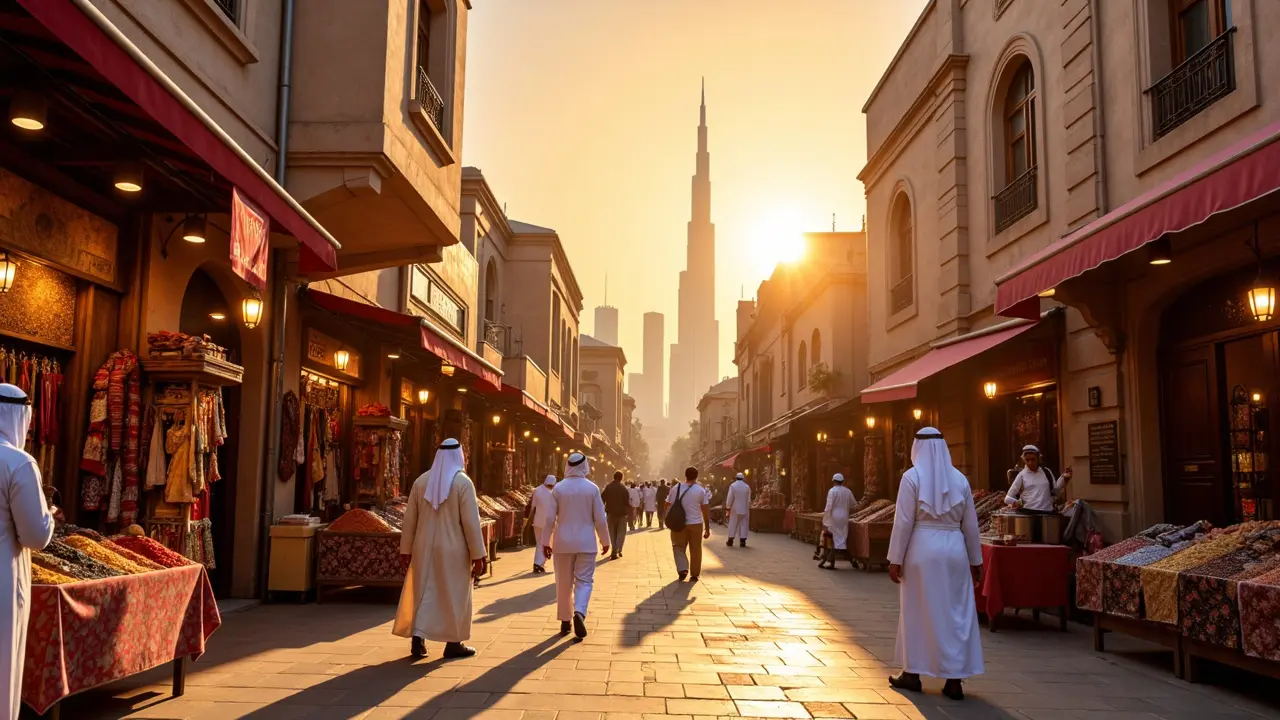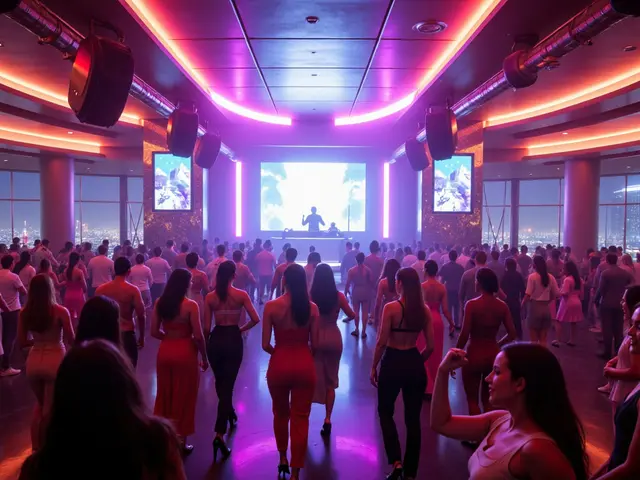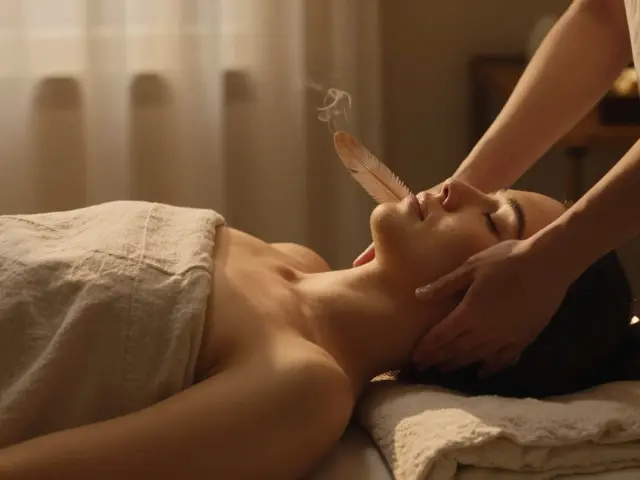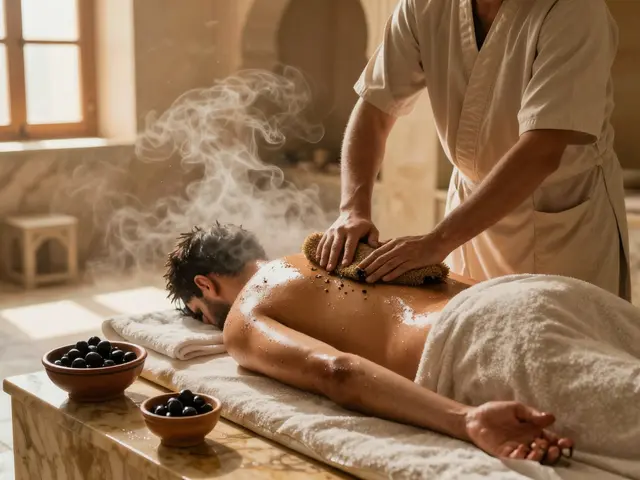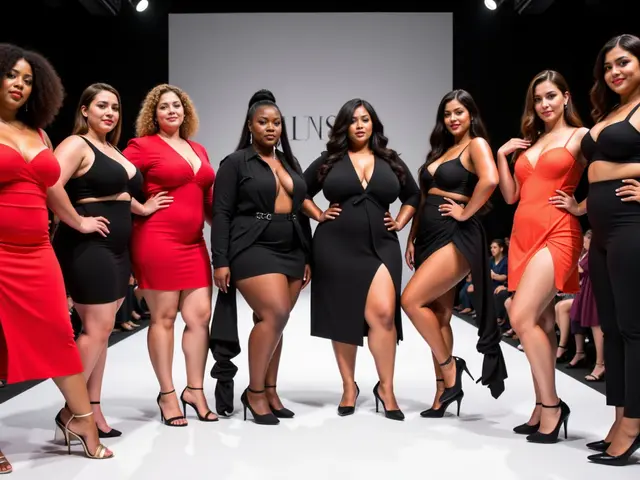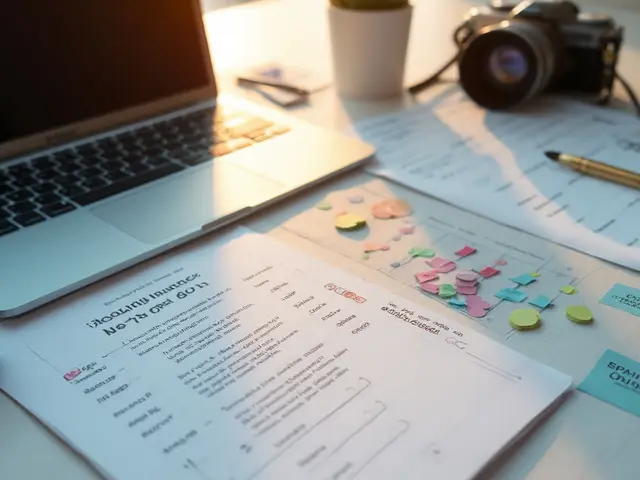Stuck in traffic on Sheikh Zayed Road or sipping Arabic coffee in Al Fahidi’s quiet alleys, you’ll notice this city is full of surprises. Dubai’s cultural experiences aren’t just tourist checklists—they’re ways to see the city from a completely fresh angle. Forget what you think you know. Here, heritage rubs up against high-rises, expats trade stories with locals, and every corner has its own vibe.
If you want to feel Dubai beyond the shopping malls, start with something simple. Ever taken the abra across the Creek? It’s just one dirham, but standing on that noisy little boat, watching traders shout in a mix of Urdu, Arabic, and Persian, you get a sense of Dubai as a real crossroads of the world. So next time you’re planning a weekend, skip the indoor brunch. Dive into a majlis, join a henna night, or visit a heritage village festival. These aren’t just photos for Instagram—they force you to rethink comfort zones, routines, and ideas about what really matters.
- Old Meets New: Dubai’s Blend of Heritage and Innovation
- Ramadan Nights and Everyday Hospitality
- Inside the Souks: The Heartbeat of Dubai’s Commerce
- Unexpected Crossroads: Global Cultures Collide
Old Meets New: Dubai’s Blend of Heritage and Innovation
Dubai’s skyline is packed with glass giants, but the city’s soul comes from quiet alleys, old wind towers, and packed Friday markets. While the Burj Khalifa and Dubai Mall are legends, Al Fahidi Historical Neighbourhood hits different. Here, old coral-block homes now host cafes, museums, and art spaces. Walking these streets, you get a crash course in how Dubai connects its past to its future without skipping a beat.
Want to see tradition stitched into daily life? Check out the Sheikh Mohammed Centre for Cultural Understanding. They host traditional Emirati breakfasts right in restored majlis rooms, and you get honest answers about life in the UAE—nothing off the table. Think curious expats learning to wear a kandura, or Dubai residents discovering why dates and gahwa still matter at every big event.
And the pace isn’t slowing. Alongside the traditional gold and spice souks, you’ll find new-wave markets like Ripe Market. Emirati artists, food trucks, and yoga classes set up next to pop-up vintage stands. Even events like Art Dubai or Expo 2020 pulled in crowds who wanted to see tech and tradition collide. If you spend a weekend bouncing from the old Textile Souk in Bur Dubai straight to Jameel Arts Centre in Jaddaf, you'll feel the jump firsthand.
Here’s a quick comparison of classic and new cultural hotspots:
| Old Dubai Spot | Modern Dubai Venue |
|---|---|
| Al Fahidi Historical Neighbourhood | Jameel Arts Centre |
| Dubai Creek & Traditional Abras | Dubai Water Canal & Ferry |
| Gold Souk & Spice Souk | Alserkal Avenue (Al Quoz) |
| Sheikh Mohammed Centre for Cultural Understanding | Expo City Dubai |
One tip: Don’t wait for a tourist to show up to explore these spots. Most residents haven’t tried half the bustling parts of Dubai culture that exist within a 15-minute drive. Challenge yourself to visit both a heritage and a hyper-modern spot in one outing—you’ll see how this city keeps its roots and dreams at the same time.
Ramadan Nights and Everyday Hospitality
Ask anyone who’s spent a Ramadan in Dubai and they’ll tell you: the city completely transforms after sunset. As soon as the cannon sounds for iftar (the fast-breaking meal), there’s this rush of energy. Streets fill with families, friends, and strangers grabbing a seat to share Emirati dishes—from harees at traditional tents by Jumeirah Beach to dates and soup in hotel ballrooms. There’s a reason so many expats say iftar is the best way to experience real Dubai culture.
During Ramadan, even five-star hotels set up outdoor majlis tents. You’ll find conversations going late into the night, tea being passed around, and endless sweets—think luqaimat and knafeh—showing up as fast as people can eat them. Participation isn’t limited to Muslims. Anyone’s welcome at most public iftars or suhoors, as long as you’re respectful of the vibe.
Street food stalls around Al Rigga and Satwa buzz after dark, but if you want a quieter experience, neighbourhood mosques often hand out free meals, no questions asked. Locals call this ‘Ramadan fridges’—community members fill fridges with food for anyone who needs it. If you want to get involved, you can volunteer with groups like Ramadan Sharing Fridges or even donate snacks and drinks directly—no red tape.
Here’s what makes Ramadan in Dubai extra unique:
- Laws change to fit cultural norms. Expect restaurants to be closed during the day, but there are quiet food courts open for non-fasters in select malls like Mall of the Emirates.
- Public events: The Global Village Ramadan market, City Walk’s open-air festivities, and the Sheikh Mohammed Centre’s special majlis iftars invite everyone in for a cross-cultural meal.
- Dress codes get stricter in public—long sleeves and pants are expected, and modest behavior is appreciated more than ever.
Check out the impact below—Ramadan isn’t just about not eating and drinking, it’s really about community and giving back.
| Aspect | During Ramadan | Rest of Year |
|---|---|---|
| Daily Charity Meals | Over 20,000 meals distributed per night (Dubai Media Office, 2024) | Fewer than 3,000 |
| Outdoor Majlis Tents | 60+ set up across city | Less than 5 |
| Public Late-Night Events | Night markets & pop-ups citywide | Mostly limited to weekends |
Everyday hospitality in Dubai isn’t a show for tourists—it’s just how things are done. You’ll notice people holding doors open, inviting you in for Arabic coffee and dates (even at the mechanic’s or bank), or offering you water in the hot season without a second thought. If someone says ‘come eat with us,’ don’t overthink it—just say yes and let the experience do its work.
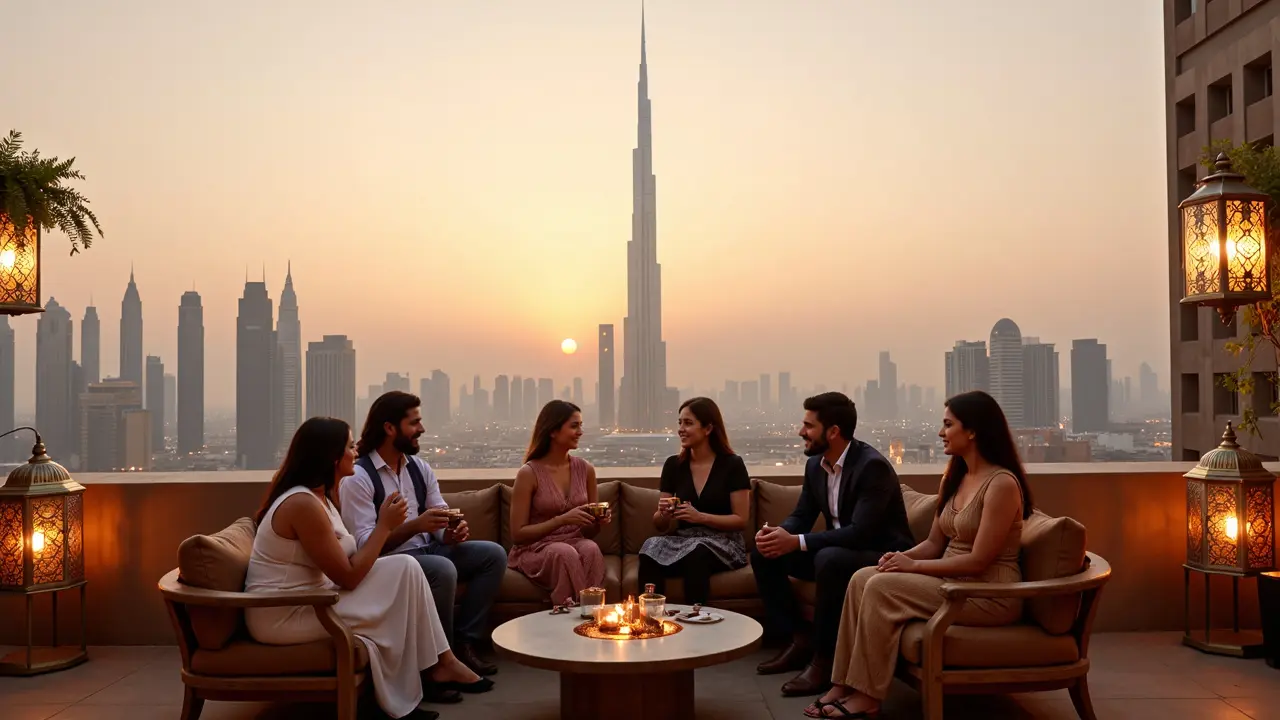
Inside the Souks: The Heartbeat of Dubai’s Commerce
Nothing gets you closer to the real Dubai than spending time in its traditional souks. Forget your shopping malls for a minute. Head toward Deira or Bur Dubai, and you’ll find open-air markets buzzing the same way they did 100 years ago. These places have history in every corner—some alleys haven’t changed since the early days of pearl trading.
The Dubai culture jumps at you here: Gold Souk, Spice Souk, Perfume Souk, and even the Textile Souk are all just a short abra ride away from each other. The Gold Souk is legendary, with over 350 retailers packed in tightly, offering everything from 24-karat bangles to chains heavier than your morning gym session. Bargaining isn’t just allowed, it’s expected. The price on the tag? Think of it as the opening bid.
Most shopkeepers are third or fourth generation. Some gold traders have operated the same stalls since the 1940s. This isn’t just business—it’s family. When you browse, don’t rush. If you build a bit of rapport, the seller will probably invite you for sweet tea or Arabic coffee, and you’ll walk out with a story, not just a souvenir.
Dubai’s souks by the numbers:
| Souk | Number of Shops | Main Products |
|---|---|---|
| Gold Souk | 350+ | Jewelry, gold bars, diamonds |
| Spice Souk | 150+ | Spices, incense, teas, dried fruit |
| Textile Souk | 50+ | Silks, cottons, pashmina shawls |
Local tip: Head down in the late afternoon. The souks are cooler, and the vibe is electric with locals finishing their shopping runs after work. Try your haggling skills at the Spice Souk—sometimes you can cut prices nearly in half, especially if you buy in bulk or combine a few items.
- Practice your basic Arabic: Salaam (hello), Kam asir? (how much?), and Shukran (thank you).
- Don’t be afraid to walk away—a seller will often drop the price as you go.
- If you’re unsure how to spot pure gold, look for UAE’s official gold hallmark stamps on jewelry.
If you want a sense of connection to how Dubai became a trading powerhouse, a couple of hours wandering the souks makes it crystal clear. It’s not just shopping. It’s watching global business happen in real time—right in front of your eyes.
Unexpected Crossroads: Global Cultures Collide
Walk through Dubai’s Jumeirah Lakes Towers at dinnertime, and you might hear a dozen languages in five minutes. This city is packed with people from more than 200 nationalities, which means every neighborhood feels like a meeting point for the world. Here, you’re just as likely to make friends over biryani as you are over borscht or shawarma. Where else can you find an Irish pub next to a Lebanese bakery, with a Filipino grocery a few doors down?
One thing that stands out: Dubai culture is all about mixing and adapting. For instance, in a single week you could celebrate Diwali at Al Seef, catch a Brazilian festival at Kite Beach, and swing by Global Village for African drumming or Chinese acrobatics. The city’s public schools, hospitals, and even gyms reflect this diversity—not just in the people, but in the services and traditions they share.
Here’s a quick look at the top communities that make up the city’s mash-up:
| Community | Estimated Population (% of Dubai) | Major Festivals/Cultural Marks |
|---|---|---|
| Emirati | 7-10% | UAE National Day, Ramadan, Heritage Festivals |
| Indian | ~27% | Diwali, Holi, Onam |
| Paksitani | ~12% | Pakistan Day, Eid, Food Fests |
| Filipino | ~7% | Bayanihan Festival, Christmas, Barrio Fiestas |
| British | ~6% | St. Patrick's Day, Christmas Markets |
| Other expats (Arab, African, European, Chinese, etc.) | ~38% | Global Village Pavilions, cultural clubs |
Dubai works hard to show off this blend. Think about events like Taste of Dubai (where you eat your way around the globe in a day), or the Art Dubai fair, which helps you experience everything from South Asian art to Middle Eastern installations. The annual Global Village is the most obvious example—you grab Turkish ice cream, haggle at a Moroccan souk, and watch Bollywood dancers, all in one evening.
If you want to get out there and soak up these cross-cultural vibes, here are some quick tips:
- Try meetup groups on social apps—Dubai hosts language exchanges, cooking nights, and walking tours just for residents hungry for something new.
- Check out cultural centers: The Sheikh Mohammed Centre for Cultural Understanding is great for breaking the ice with Emirati customs, while the Alliance Française, Indian High School, and Philippine Business Councils all run open events.
- Don’t skip Global Village—it’s open all winter, and a painless intro to regional food and traditions.
Living in Dubai means bumping into different worldviews every day. What hits you hardest isn’t the flashiest building or the shopping deals, but the way cultures blend out in the open, teaching you to open up and rethink how you relate to people from everywhere.

